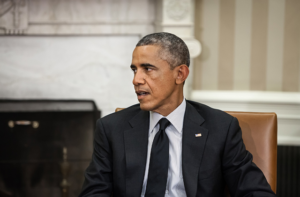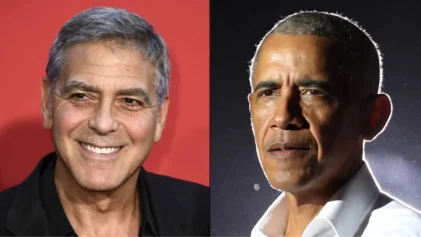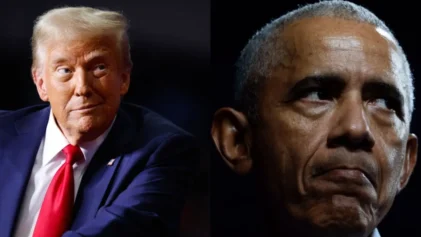
Pulley writes :
“As the cofounder of Black Lives Matter Chicago, I was issued an invitation to this event, and various news outlets have already listed me as an attendee. But as a radical, Black organizer, living and working in a city that is now widely recognized as a symbol of corruption and police violence, I do not feel that a handshake with the president is the best way for me to honor Black History Month or the Black freedom fighters whose labor laid the groundwork for the historic moment we are living in.”
She would have joined high-profile activist Deray McKesson; President of the NAACP Legal Defense Fund Sherrilyn Ifill; student leader of the Concerned 1950 movement at the University of Missouri Deshaunya Ware; Rev. Al Sharpton; and Congressman John Lewis of Georgia.
The Chicago activist wanted “a genuine exchange on the matters facing millions of Black and Brown people in the United States.” She believes that the entire meeting was a facade and publicity stunt that would yield no real results on the issue of police brutality.
Obama’s past response to the many documented incidents of police brutality were met with lackluster ideas such as better training for officers and police cameras on every officer — even though cops are regularly caught on tape violating individual civil liberties.
Pulley goes on to write:
“If the administration is serious about addressing the issues of Black Lives Matter Chicago — and its sister organizations that go by different names across this nation — they can start by meeting the simple demands of families who want transparency, and who want police that kill Black people unjustly to be fired, indicted and held accountable.”
The activist is tapping into something much deeper with her piece — that the president and federal government have been ineffective in the fight against police brutality.
Pulley, like many others, has little faith that excessive force in American policing will be eliminated through political reform. With an estimated 1,100 people killed by police last year, Pulley has a legitimate gripe with the president’s administration and their response to the countless unarmed Black people who have been killed by law enforcement.
Pulley leaves us with these questions:
“Truly, we must ask, who is the criminal and what is justice and who is this system for, when George Zimmerman, Darren Wilson, Jon Burge, Glen Evans, George Hernandez, Dante Servin, Anita Alvarez and Rahm Emanuel walk free? And we must ask, who then has been criminalized, who is behind bars and why are they disproportionately Black and poor?”
The Chicago-based activist also inadvertently highlights the criticisms between some high-profile activists in the Black Lives Matter movement and the under-the-radar activists.
She had not been in the national media spotlight until after this op-ed, while many others have gained great publicity by accidentally becoming bigger than the movement itself with various media appearances.


